You open your book to learn Idioms for Cooking, and suddenly people are “in a pickle”, “cutting corners”, and “cooking the books”. Like, why is everything either burning, boiling, or emotionally deep-frying us? These phrases show up everywhere, from reels to office emails, yet nobody teaches their real meanings. So here’s the hard truth: if you don’t understand these idioms, conversations start feeling like mystery masala packets with no labels. This guide breaks every idiom down in simple English that even your sleep-deprived brain can digest.
This Blog Includes:
Cooking Phrases and idioms
Cooking is something which has huge importance in people’s lives as they get the food through it. Knowing and understanding the cooking phrases and idioms is needed to use them perfectly in the sentences. Therefore, here are some of the cooking idioms along with their explanation and examples.
On a Plate
The idiom “on a plate” means to have something given to you very easily or without having to work for it. Basically, it implies something which is easily handed over without any hard work.
For example: He inherited his father’s successful business empire on a plate, so he never really had to struggle to achieve financial success.
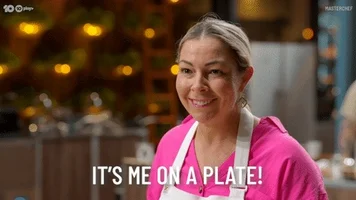
Curry Favour
The idiom “curry favour” means to try to gain someone’s favour through flattery or other means, often with the intention of gaining some benefit.
Example: She’s always bringing gifts to the boss in an attempt to curry favor and get promoted.
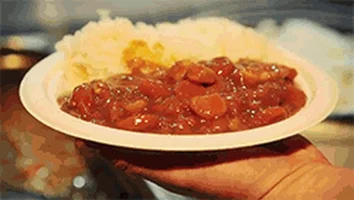
Boils Down To
The idiom “boils down to” means to be summarized or simplified to the most important elements.
Example: The argument between the two sides ultimately boils down to a disagreement over money and control.

Also Read: Understanding Idioms: Examples and Meanings
Boil Over
The idiom “boil over” refers to a situation where emotions or tensions become so intense that they cannot be controlled, often resulting in an outburst of emotions.
Example: Sarah finally boiled over and confronted her boss about the unfair workload.
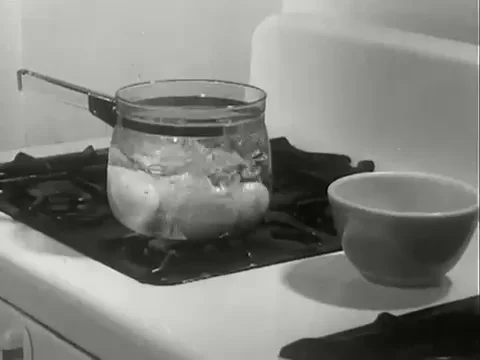
Spice Things Up
This idiom means to add excitement or interest to something. It originated from the idea of adding spices to food to enhance its flavour.
Example: Let’s spice things up by trying a new recipe tonight!

In a Pickle
In a pickle is an idiom that means to be in a difficult situation. It holds its origin in the practice of pickling vegetables, which takes time and effort.
Example: I’m in a pickle because I promised to cook dinner for ten people tonight, but I only have enough ingredients for four.
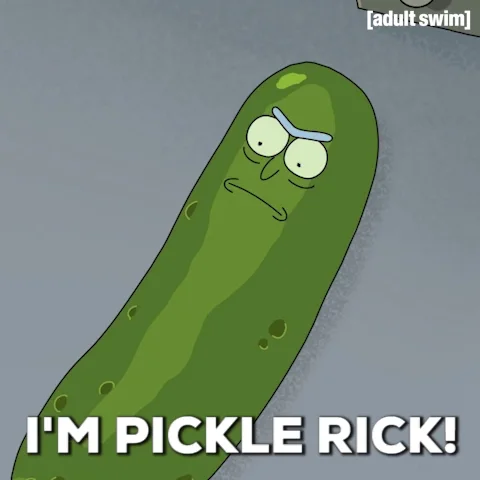
Cook the Books
This idiom means to manipulate financial records for personal gain. The phrase ‘Cook the books’ originated from the practice of using two sets of accounting books, one for the tax authorities and one for personal use.
Example: The CEO was caught cooking the books to inflate the company’s profits.
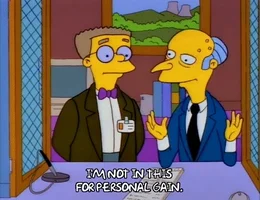
Eat Humble Pie
This idiom means to admit one’s mistakes and apologize. In popular culture, it is a common belief that the origin of Eating humble pie is from serving humble pie, a dish made with animal innards, to lower-class people who couldn’t afford meat.
Example: After realising his mistake, he had to eat humble pie and apologise to his colleagues.

Cut Corners
This idiomatic phrase means to do something quickly and cheaply without following proper procedures. It originated from the practice of cutting corners while cooking to save time and effort.
Example: We can’t cut corners when it comes to food safety.

Simmer Down
The idiom ‘Simmer down’ means to calm down or relax. In other words, it refers to simmering food on low heat to cook it slowly and evenly.
Example: You need to simmer down and stop getting so worked up over small things.
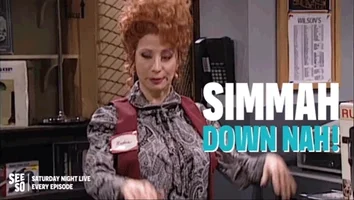
Have Bigger Fish to Fry
When you say you have bigger fish to fry, it means you have more important things to do. To elaborate, it practice of cooking fish, where larger fish required more attention and effort to cook properly.
Example: I can’t worry about this small issue right now; I have bigger fish to fry.

Also Read: Idioms for IELTS
List of Other Idioms for Cooking with Meaning
Some other idioms for cooking are listed below for your easy reference:
| Idiom for Crying | Meaning |
|---|---|
| A piece of cake | Something very easy to do |
| Bite off more than you can chew | To take on more than you can handle |
| Butter someone up | To flatter someone in order to get something from them |
| Cook the books | To falsify financial records |
| Cut corners | To do something in a less thorough or careful way in order to save time or money |
| Easy as pie | Something very easy to do (similar to ‘a piece of cake’) |
| Egg someone on | To encourage someone to do something, especially something foolish |
| Full plate | To have a lot to deal with |
| Have your cake and eat it too | To want to enjoy the benefits of something without accepting the drawbacks |
| In a pickle | To be in a difficult situation |
| On a roll | To be successful or enjoying a period of good luck |
| Over easy / Over medium / Over hard | How you like your eggs cooked (sunny side up, slightly runny yolk, fully cooked yolk) |
| Spice things up | To make something more exciting or interesting |
| Spill the beans | To reveal a secret |
| Stir the pot | To deliberately cause trouble or make a situation more tense |
| Too many cooks spoil the broth | When too many people try to give advice or help with a task, it can make things worse |
| Whip something up | To quickly prepare a meal |
| Bring Home the Bacon | Someone who is earning a lot of money. |
| Half Baked | Insufficiently planned or developed; not thought out. |
| Cool as a Cucumber | Someone calm and composed. |
| Something’s Cooking Up | To be successful or enjoy a period of good luck |
| Cry over spilt milk | To get upset over something that has happened and that you cannot change it! |
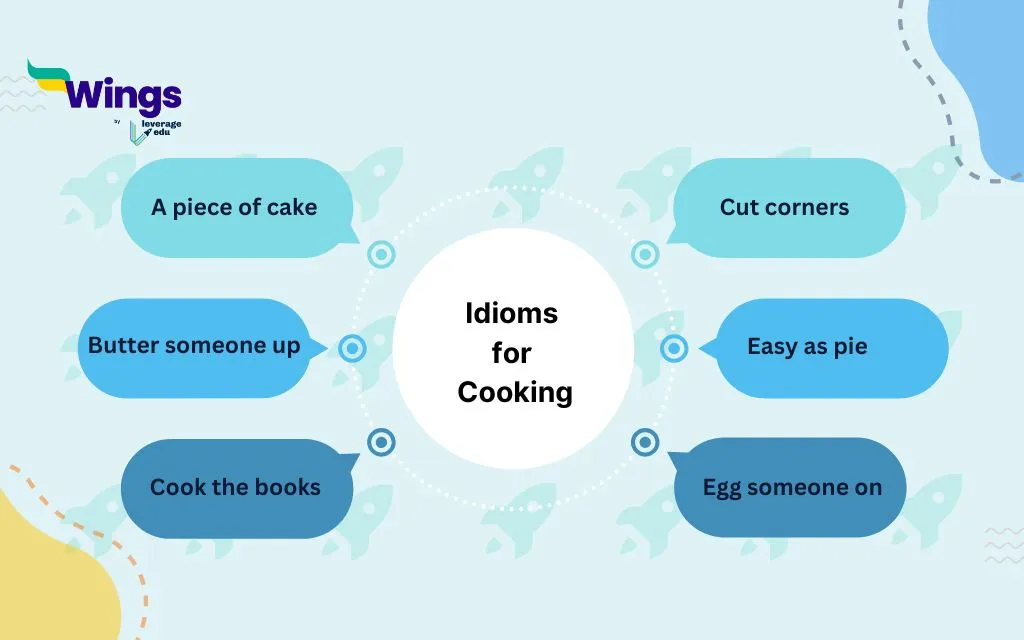
Also Read: 10 Best Idioms for Love to Express Your Heart
FAQs
Ans: Common Idioms for Cooking include “boil down to”, “cook up”, and “on a plate”. These idioms don’t talk about real cooking but express ideas like simplifying something, creating a plan, or getting something easily. They’re used often in daily English and media.
Ans: A popular cooking quote is “A recipe has no soul. You, as the cook, must bring soul to the recipe.” It highlights the idea that cooking is more than steps; it’s creativity and emotion. This fits perfectly with the idea behind many Idioms for Cooking.
Ans: While not directly a cooking idiom, people often say “finger-licking good” or “mouthwatering” to describe something delicious. These phrases show strong enjoyment of food. They pair well with many Idioms for Cooking when talking about taste or meals.
Ans: A fancy or formal name for cooking is “culinary arts.” It refers to the skill, creativity, and technique involved in preparing food. This term is often used in professional kitchens, hotels, and cooking schools.
Ans: Popular slang for cooking includes “whipping it up”, “throwing down in the kitchen”, or “chefing it up”. These slang phrases are casual and fun, often used to hype someone’s cooking skills. They blend well with modern Idioms for Cooking and everyday talk.
Read more blogs on Idioms and Proverbs here
| Proverbs About Money | English Proverbs for Class 4 |
| English Proverbs For Peace | English Proverbs for Class 5 |
| English Proverbs about Love | Proverbs on Time for School Students |
This was everything you needed to finally master the most useful Idioms for Cooking. Now you know what each phrase means, how it works in real conversations, and how to use them without feeling lost or second-guessing yourself. Keep learning and stay connected with Learn English on Leverage Edu for more helpful and student-friendly blogs. And if this helped you, don’t forget to share, rate, and drop a comment. Your support helps more students find the good stuff.


 One app for all your study abroad needs
One app for all your study abroad needs











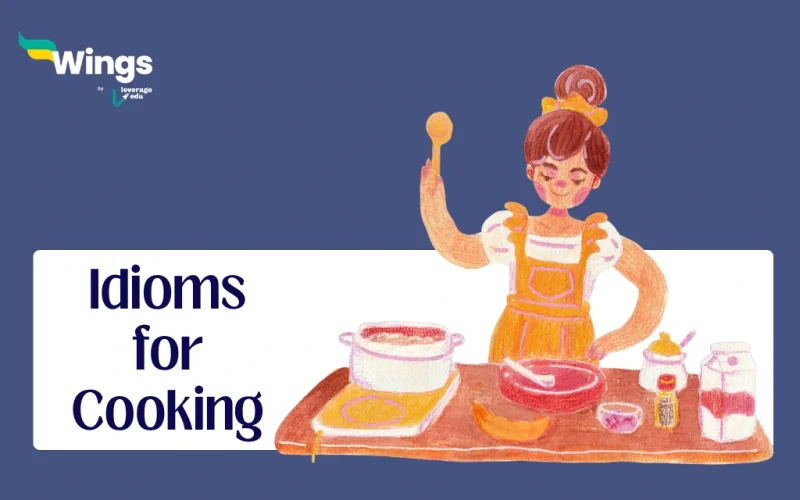
 60,000+ students trusted us with their dreams. Take the first step today!
60,000+ students trusted us with their dreams. Take the first step today!